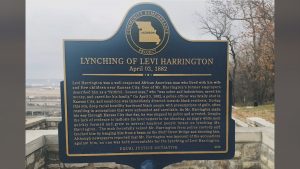Two months after the California Reparations Task Force released its initial report detailing the state’s history of slavery and the ongoing impact of race-based discrimination, the state has launched a series of listening sessions in order to receive community feedback on the legislation.
On Friday, California residents who might be eligible to receive reparations from the state met at the offices of Black Women for Wellness in the Los Angeles neighborhood of Leimert Park to share their opinions on what reparations were needed.
“In my family we have been affected by eminent domain,” said Hawthorne, California, resident Ashley Lambey, 33, during the meeting Friday. “We haven’t been able to get anything in terms of what our parents left for us,” she said, referring to the right of the government to seize private property for public use.
“A lot of young kids don’t know about Jim Crow,” said Kathy Clark, 71, a resident of the Paramount/East Compton area who also attended the meeting. “I had to sit on the sidewalk; I couldn’t sit at the counter to eat my hot dog,” said Clark, recalling the days when state and local laws enforced racial segregation in the United States.
“There are so many tables that need to be overturned and reset,” said Donyell Smith, 53, a resident of San Diego who attended the meeting virtually. “Reparations is due in every single area.”




